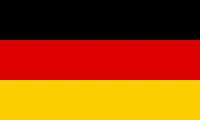Germany's Economic Woes: From Powerhouse to 'Sick Man of Europe'
OECD forecasts global economic improvement, but Germany faces stagnation. Once Europe's economic engine, Germany now grapples with energy challenges, Chinese competition, and political hurdles to reform.

The Organisation for Economic Co-operation and Development (OECD) has recently released its economic outlook, suggesting a positive turn for the global economy. Founded in 1961, the Paris-based think tank now predicts a "robust" growth of 1.1% for the United Kingdom in 2024, a significant improvement from its May forecast of 0.4%.
This places the UK second among G7 nations, a group comprising the world's most advanced economies. The United States leads with an anticipated 2.6% growth, while Germany, the world's fourth-largest economy, lags behind with a mere 0.1% growth forecast for 2024.
Germany's economic struggles have become increasingly apparent, with the influential Ifo Institute warning of a "vicious cycle of stagnation." The country's manufacturing Purchasing Managers' Index (PMI), a key indicator of economic health, fell to 40.3 in September 2024, signaling contraction in the sector that accounts for over a fifth of the German economy.

"It's time to go back to competition-friendly reforms. There are too many barriers to services in many parts of the German economy – it's still too difficult, with too much red tape and we think that's having an impact."
This economic downturn marks a stark contrast to Germany's past performance. Following reunification in 1990 and subsequent reforms in the early 2000s, Germany emerged as Europe's economic powerhouse. The introduction of the euro in 1999 further boosted its export-driven economy.
However, Germany's current economic model, built on cheap Russian energy and strong Chinese demand, faces significant challenges. The country's energy dependence has been exacerbated by its decision to phase out nuclear power following the 2011 Fukushima disaster, leading to some of the highest electricity costs in Europe.
In the automotive sector, German manufacturers are losing ground to Chinese competitors. China now accounts for 60% of global electric vehicle production, capitalizing on its dominance in battery manufacturing and control over rare earth minerals essential for high-tech products.
Political hurdles further complicate Germany's path to economic recovery. Chancellor Olaf Scholz faces resistance to market-friendly reforms from both the far-right Alternative for Deutschland (AfD) and the new left-wing BSW party. This political landscape differs significantly from the early 2000s when reforms helped reduce unemployment and drive growth.
Despite these challenges, some positive factors could support Germany's economy. Rising real wages may boost consumer spending, potentially encouraged by recent European Central Bank rate cuts. Additionally, China's recent stimulus measures could revive demand for German exports.
However, Germany's economic struggles have broader implications. As the largest economy in the European Union and the third-largest exporter globally, Germany's performance significantly impacts the wider European and global economies. The country's transition from economic powerhouse to the "sick man of Europe" serves as a cautionary tale about the risks of complacency and the need for continuous innovation in the face of changing global dynamics.


































